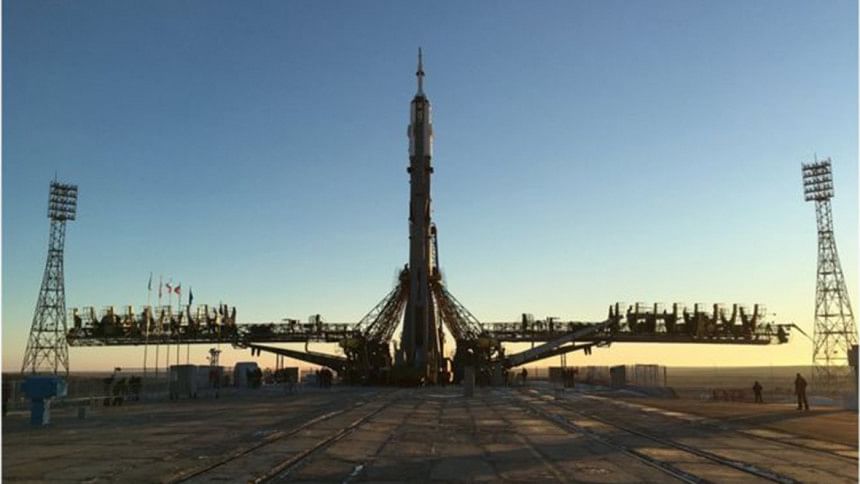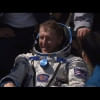UK astronaut set for space milestone

UK astronaut Tim Peake is ready to make his landmark flight to the International Space Station (ISS).
On Tuesday, the former helicopter pilot will launch on a Russian Soyuz rocket at Baikonur Cosmodrome in Kazakhstan.
He will be accompanied by crew members American Tim Kopra and Russian Yuri Malenchenko.
Once at the ISS, Peake will begin a programme of experiments and educational activities designed to get young people interested in science.
Launch is set for 11:03 GMT from Site 1 at Baikonur, the pad where Yuri Gagarin made the first historic human spaceflight in 1961. The Soyuz space capsule is due to dock with the space station at 17:23 GMT.
Peake is the first UK astronaut to fly under the banner of the European Space Agency (Esa).
Helen Sharman became the first British citizen to travel to space when she visited the space station Mir in 1991. Her mission came about through a co-operative venture between the Soviet government and British business.
Sharman told BBC News: "Launch itself is a day that you want to get on with, because finally, you're getting to do what you've been trained to do for so long. I trained for 18 months, Tim Peake will have trained for six years by the time he flies."
The crew woke up at 0200 GMT (0800 local time) for breakfast. After a farewell ceremony, they depart the cosmonaut hotel in Baikonur for medical tests.
After a break, they get into their white "Sokol" suits - which are worn during launch and re-entry - before saying final farewells to their families. The crew are placed in quarantine for two weeks before launch to ensure they do not become ill in space.
Then, at about 0800 GMT (1400 local time), the crew board a bus to the launch pad and ride the lift to the top of the Soyuz rocket. Peake and his colleagues will then be strapped into their seats so that they can prepare for launch.
Sharman explained. "You're part of a great big machine… by that stage, the team is so big - the doctors, the trainers - that you're not going to be able to go wrong."
At 11:03 GMT (17:03 local time), notwithstanding some unforeseen obstacle, the Soyuz launcher's five thruster units will ignite, blasting the astronauts into orbit for the six-hour journey to the ISS.
German Esa astronaut Alexander Gerst, who was selected along with Tim for the astronaut class of 2009, told BBC News: "He's had 6,000 hours of training - a brutal amount over several years. He also went through preparation for launch earlier this year when he was on the back-up crew for another mission… so he's now completely ready."
Gerst added: "As an astronaut at this stage you're really relaxed. Mainly because your principal worry is that something will get in the way of launch; that you'll get ill or there'll be a technical problem."
Richard Farrimond was one of four UK astronauts selected to launch satellites from Nasa's space shuttle in the 1980s, though the missions were cancelled after the Challenger disaster.
He told BBC News: "Having met the man, I think he's quite superlative… I'm looking forward to seeing him up there on my TV screen."
The mission might never have happened, however, had then-science minister David Willetts not successfully argued for an end to the UK government's longstanding opposition to human spaceflight. The change came about through negotiations in 2012 with officials from Esa.
Willetts told BBC News that Peake was "on the training programme, but was not part of the manned flight programme. Sadly he was very unlikely to get a flight up to the space station".
"We moved into participating in manned missions. The fact he's going to do some great science while he's up there has justified that decision."

 For all latest news, follow The Daily Star's Google News channel.
For all latest news, follow The Daily Star's Google News channel. 







Comments